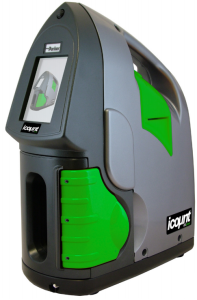As part of LB Bentleys Continuous Improvement Programme over the last few months we have been focussing on how to improve the measurement of fluid cleanliness after flushing hydraulic actuators.
Cleanliness of control fluids used in the operation of hydraulic control equipment is fundamental to reliability of these systems. The extensive use of hydraulic actuators fitted to subsea valves are no exception to this, which is why all of our customers include a specification defining the level of cleanliness that these units are to be supplied to.
Whilst the flushing of pipelines is relatively easy to perform, cleaning of actuators is less straight forward as the measurement of the level of contamination can be confusing, especially with a range of standards that is used with differing classifications.
To measure the cleanliness level of an actuator, clean fluid first flows into the closed cylinder / piston cavity, the piston is stroked open, then the piston closed with the swept fluid being ejected to a region where any contamination can be inspected. Traditionally, the fluid was analysed for contamination by using a microscope to assist in manually counting and classifying the size of the particles, this is clearly prone to operator judgement and repeatability issues. The introduction of inline particle counting devices automated the counting, but these have limitations where swept volumes are small as they require a constant and steady flow past the meter, something that the rotary gate valve actuator cannot provide.
The ethylene glycol fluids now in common use also suffer from entrained air, foaming and liquid separation. All of these effects act to suggest that the fluid is more contaminated than it actually is.
The development of the OPTItorkTM actuator prompted a fundamental re-appraisal of the techniques used in measuring the cleanliness of the flushed fluid. After a review of the various equipment and processes currently available, a decision was made to introduce the latest technology in the form of a new particle counting machine, an ‘icountBSplus Bottle Sampler’ as manufactured by Parker Hannifin.
An automated process first eliminates entrained gas in the sample. It does this by pulling a vacuum to draw out any dissolved air, then the sample is pressurised to push any microscopic bubbles back into solution. With pressure still applied, the unit internally cleans itself by pre-flushing through from the fluid sample, then finally a pre-set volume is drawn through for analysis purposes. The unit is microprocessor controlled, with the required output being selected through an integral screen. The results are stored internally in the on-board memory and can either be printed or downloaded for filing.
This equipment laser diode is used for optical detection of actual particulates, calibrated to ISO 4406, NAS 1638, AS4059 (differential and cumulative) & GOST 17216 standards, capable of measuring particle sizes between ISO 7 to 21, NAS 0 to 12, and has been tested using a wide range of ethylene glycols, including MacDermid Oceanic & Castrol Transaqua ranges of fluids.
Should any of the calibrating standards change in the future, the internal controlling software is such that it can be easily updated to the latest requirements.
This equipment is now installed, personnel trained and being effectively used on current production orders.
For more information on the continuous improvements being made within LB Bentley please visit our website www.lb-bentley.com
